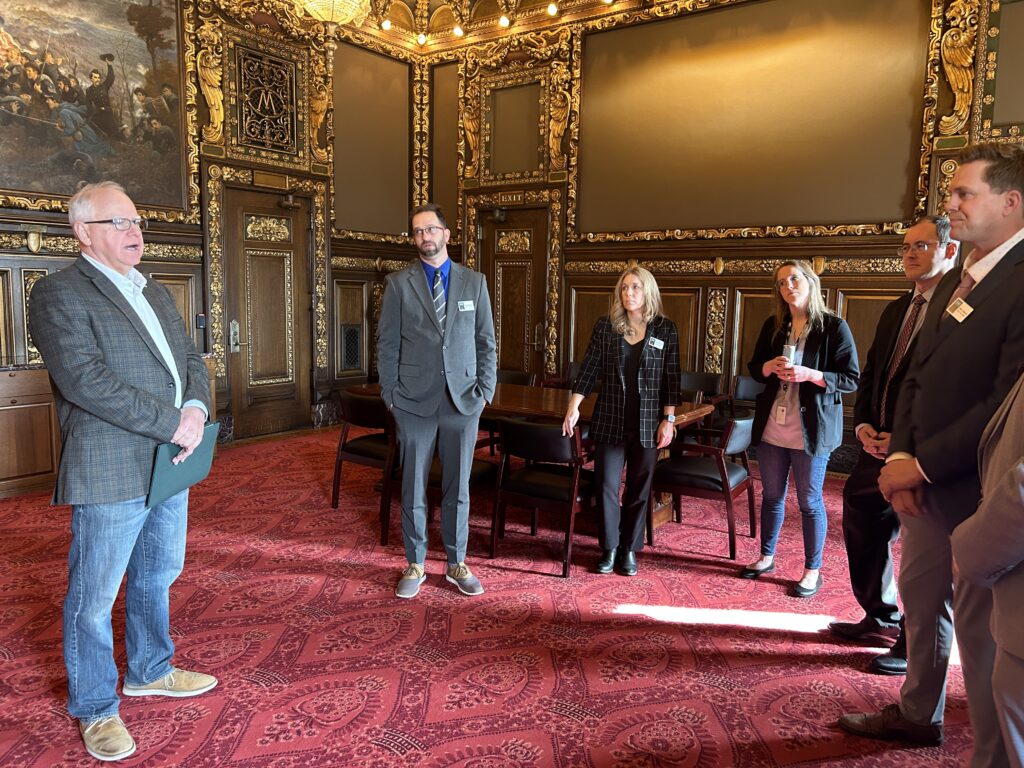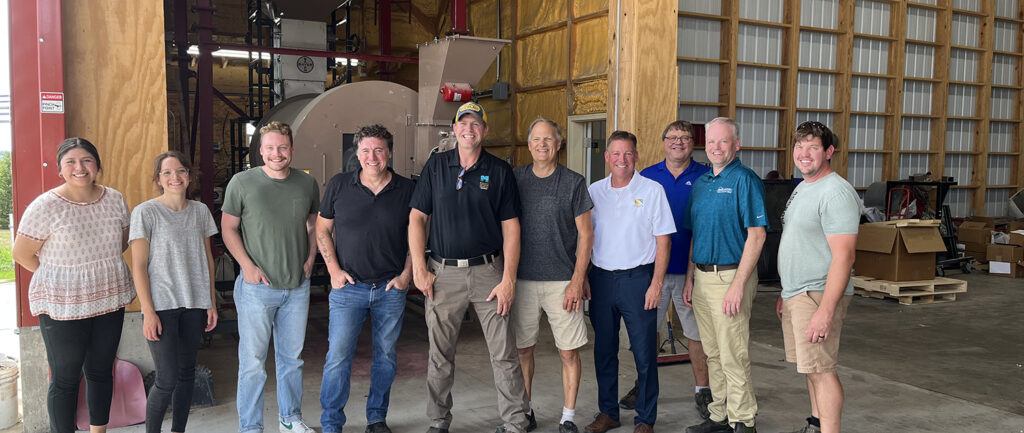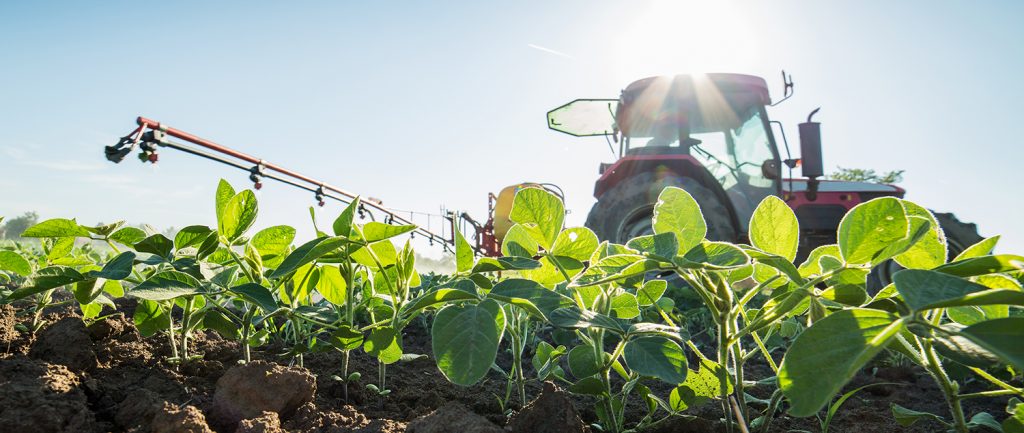Farmer leaders from the Minnesota Soybean Growers Association (MSGA) met in the Governor’s Reception Room on March 8 to discuss MSGA’s policy priorities with Gov. Tim Walz and Minnesota Department of Agriculture (MDA) Deputy Commissioner Andrea Vaubel.
Including biofuels in any low carbon fuel legislation was the top topic for both MSGA and the governor. The governor said he welcomed input from farm groups, and preached patience while indicating that his administration’s policy goals have a narrower focus in 2024.
“We need everyone at the table,” Gov. Walz said. “It’s super important that we make sure your voice is heard on the CTS (clean transportation standard).”
Under a proposal that was heard and laid over in the Senate Transportation Committee the day before the meeting with the governor, the state would grant credits to clean fuel producers, such as power companies that support electric vehicle charging, and make the producers of fuels buy those credits.

The plan shows that ethanol and biodiesel would receive share of the credits generated under the new system, though it would decline significantly by 2040. MSGA believes the carbon scoring used in the bill treats ag feedstocks unfairly and seeks to limit their use as soon as possible. In the short term, particularly in the early 2030s, renewable diesel would gain the most credits of any fuel type however long-term biofuels would be phased out.
The governor said he’s urging the Legislature to welcome input from agriculture advocacy groups.
“We’re more concerned with getting this right,” he said.
Brian Werner, executive director of the ethanol industry group Minnesota Biofuels Association, testified on behalf of agriculture and biofuels associations with a number of concerns contained in the proposal. Those groups include: MSGA, the Minnesota Biodiesel Council, Minnesota Corn Growers Association, Minnesota Farm Bureau and Minnesota Farmers Union, respectively.
“As an ag coalition, we’re 100 percent together,” MSGA Executive Director Joe Smentek told the governor. “This ball has got to be workable and realistic. As the bill currently is, the Legislature is missing a huge opportunity to cut carbon today.”
Gov. Walz pledged his support to continue promoting the inclusion of soybeans as a feedstock in sustainable aviation fuel.
“If we keep pushing on sustainable aviation fuel, it opens up a lot of conversations,” he said.
During the meeting at the Capitol, directors also encouraged the governor to endorse upgrading the state of Minnesota’s multi heavy-duty vehicles, including snowplows, to B100 (100% biodiesel), which would help the state reach net-zero emission goals by using Optimus Technologies.
“It was encouraging to hear the governor talk about supporting biofuels and that he doesn’t want to rush into legislation that would harm our markets,” MSGA Vice President Darin Johnson said. “He understands how big of a role agriculture plays in our economy.”
Johnson was joined by Treasurer Ryan Mackenthun, Secretary Rose Wendinger and Directors Jamie Beyer and Kyle Jore, along with Smentek and MSGA’s lobbying team.
MSGA also updated the governor on the progress at the Ag Innovation Campus, which launched operations last year. The state of Minnesota has funded more than $5 million toward the crush and research facility in Crookston.
“The Ag Innovation Campus is another project that looks toward the future instead of being reactive to what markets are doing,” Gov. Walz said. “It’s trying to create value-added, and that’s exciting.”
Growers also engaged with the governor and Deputy Commissioner Vaubel on the importance of opening new markets through MDA-led international trade missions.
“The dedication and the hard work that MDA does, I couldn’t praise them enough,” Smentek said. “We’re fortunate to work with them.”





